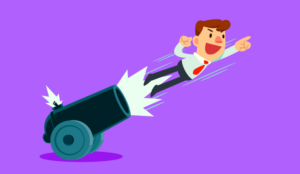Paul Sephton of Jabra discusses how you can help support remote workers to concentrate and work well from anywhere.
Today’s knowledge workers can easily become overwhelmed by the number of tools their workflows demand.
HubSpot labeled this phenomenon as “death by 1,000 apps”, examining the particular predicament of salespeople who struggled to manage data across a myriad of applications.
Conflicting internal and external communications platforms, coupled with the inefficiencies of emails and conference calls, can leave people with no time to focus, and an always-on feeling of interruptions affecting productivity, not to mention key detail and context sometimes being missed.
Though open offices will likely encounter fewer cases of densification in the coming years, some challenges to concentration will still persist in those spaces, while further unchartered ones will arise in home working, in environments that employers have no control over.
Training your organization in effective remote working is one solution, but this must go hand in hand with giving them the tools to concentrate as well.
Training your organization in effective remote working is one solution, but this must go hand in hand with giving them the tools to concentrate as well.
In addition to giving people the software tools to communicate and collaborate, make sure you also invest in giving people the capacity to concentrate.
For bigger businesses this could mean architecting the right spaces and environments, and for home workers, this could mean a budget for setting up their home office.
Across any working environment, technology hardware can also play a supporting role; perhaps a bigger monitor, or noise-cancelling headphones with busylight indicators to let family know if someone is on a call or not to be disturbed. Technology indicators like this are supporting elements that can bring about behavioural change to aid concentration.
By giving employees these tools to perform at their best, businesses can create the structures for new social norms, either in an office or home environment. Devices can create positive effects or experiences that lead to cultural changes and aid better concentration.
Devices can create positive effects or experiences that lead to cultural changes and aid better concentration
As voice assistant usage grows in enterprises in the future, our computers and headsets will also allow us to augment ourselves with greater intelligence, as these assistants gain further contextual and smart responses to each individual’s way of working.
The features will include predictive analytics and greater natural language processing with better speech recognition, machine translation, natural language generation, semantic search, and machine learning, all of which will drive productivity in our future work spaces.
Author: Guest Author
Published On: 19th Jun 2020 - Last modified: 23rd Jun 2020
Read more about - Guest Blogs, Jabra
















